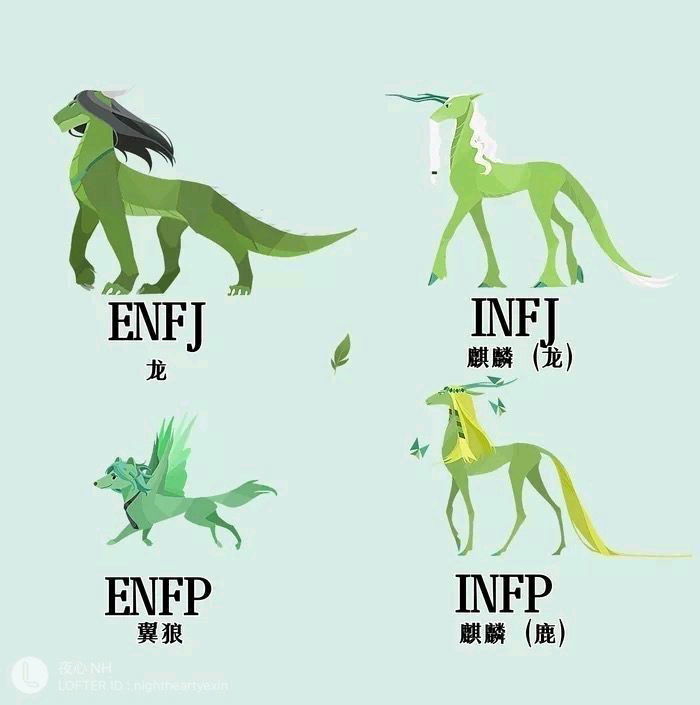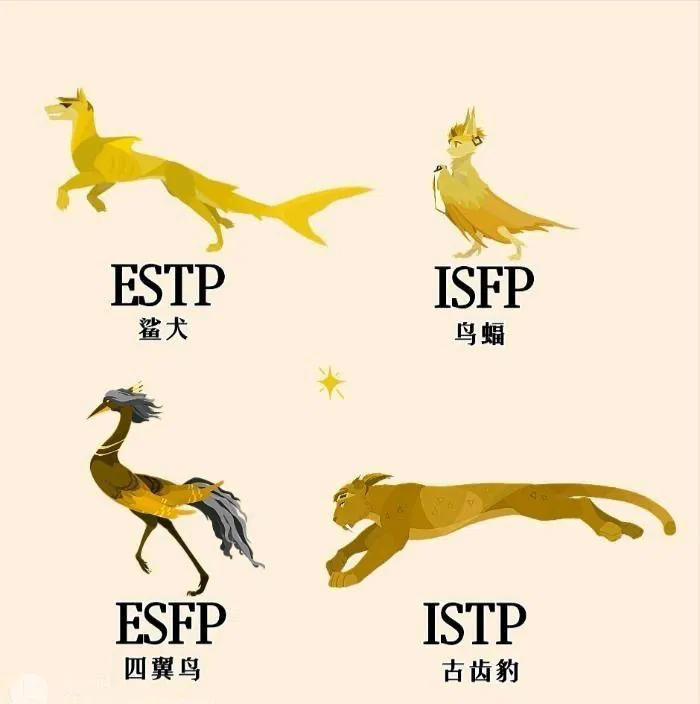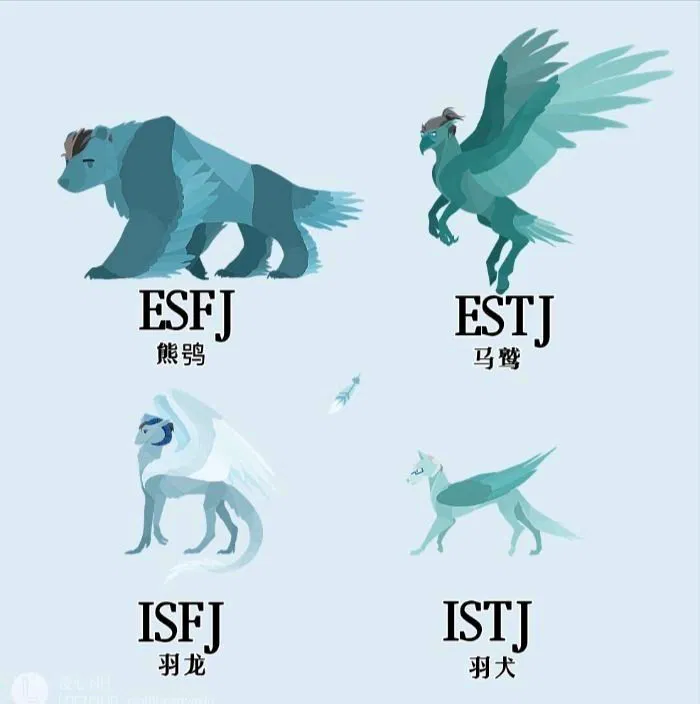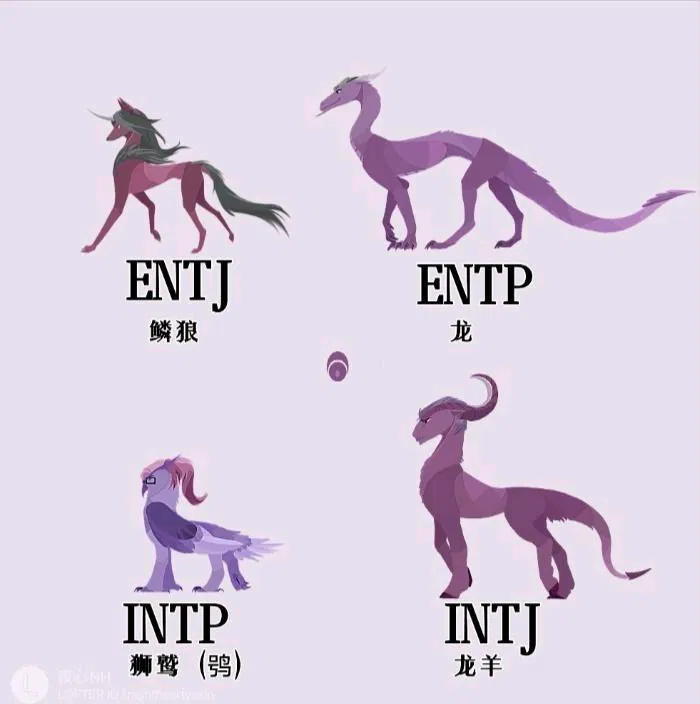We use cookies on our website for a number of purposes, including analytics, performance, and advertising. Learn more.
OK!
Boo
SIGN IN
ENFP vs ESFJ: A Comprehensive Comparison Between the Crusader and the Ambassador
By Boo Last Updated: December 4, 2024
Unpacking the puzzle of human behavior is a challenging yet rewarding endeavor, and personality frameworks like the Myers-Briggs Type Indicator (MBTI) can serve as excellent guides. MBTI types not only help us understand ourselves better but also give us a way to decode the complexities of human interaction. This article aims to provide a deep dive into the ENFP and ESFJ personalities—known respectively as the Crusader and the Ambassador. Although both types are outgoing and generally people-oriented, they differ fundamentally in the ways they perceive the world, make decisions, and prioritize values. By comparing their cognitive functions, values, and problem-solving styles, we offer a comprehensive look at how these two types can both clash and complement each other.
The Foundations: Brief Overview of MBTI
Before we dive deeper into our primary subjects, let's familiarize ourselves briefly with the Myers-Briggs Type Indicator (MBTI). This psychological tool identifies your tendencies across four dimensions: Introversion/Extraversion, Sensing/Intuition, Thinking/Feeling, and Judging/Perceiving. Now that we have this background, we can delve into how ENFPs and ESFJs manifest these characteristics in unique ways.
Cognitive functions
Cognitive functions are the psychological mechanisms that dictate how we perceive and judge information. Let's break down how the ENFP and ESFJ types differ fundamentally in their cognitive functioning.
- ENFP: Leading with Extraverted Intuition (Ne), ENFPs possess an inherent knack for seeing diverse possibilities and connections. They often act as the group's catalyst, energizing discussions with innovative ideas and creative solutions.
- ESFJ: On the flip side, ESFJs operate primarily through Extraverted Feeling (Fe). This allows them to perceive the emotional undercurrents in a room and act accordingly. They often serve as social harmonizers, making sure everyone feels included and understood.
Values and worldview
Our values and worldviews shape our actions and reactions. These core beliefs help distinguish the ENFP's love for freedom and individuality from the ESFJ's focus on community and harmony.
- ENFP: They have a strong ethical framework focused on personal freedom, individuality, and creative expression. ENFPs excel in environments that allow for authentic self-expression and the free exchange of novel ideas.
- ESFJ: They, however, prioritize the needs of the collective over the individual. Their actions often serve to maintain social balance and communal well-being, even if it requires personal sacrifice or compromise.
Problem-solving approaches
The way each type approaches problem-solving is deeply influenced by their cognitive functions and values. Here, we'll examine the adaptive, intuitive methods of ENFPs against the community-oriented, empathetic approaches of ESFJs.
- ENFP: When confronted with a problem, ENFPs activate their intuitive and creative abilities. They're adept at looking at issues from multiple angles, often arriving at innovative solutions that others might overlook.
- ESFJ: Conversely, ESFJs approach problem-solving by carefully considering the social and emotional implications of each possible solution. They strive to choose paths that will be harmonious and acceptable to all parties involved.
Diving Deeper: Insights into ENFP and ESFJ
To fully appreciate the essence of each type, we need to go beyond the surface-level traits and look at their inner workings.
ENFP
- Intrinsic motivation: ENFPs are often self-motivated, propelled by their own values and beliefs.
- Global thinkers: They tend to see the bigger picture, effortlessly connecting dots between seemingly unrelated matters.
ESFJ
- Community builders: ESFJs are natural networkers, often serving as the linchpin in their social circles.
- Detail-oriented: They have an eye for details that many others overlook, especially when it comes to social etiquette and individual needs.
Real-World Reactions: Everyday Reflections
Real-world scenarios often serve as the most revealing instances of how different personality types interact and cope. Let's look at how ENFPs and ESFJs would handle three specific scenarios: at a social gathering, during a conflict, and when feelings of jealousy arise.
Scenario 1: Social gathering
- ENFP: At a social gathering, the ENFP will likely be the one introducing new topics for discussion or suggesting fun activities. They thrive in dynamic environments and enjoy stimulating conversations, often skipping from one topic to another.
- ESFJ: On the other hand, ESFJs, will focus on making sure everyone feels comfortable and included. They may go around asking people if they need anything and generally work to create a harmonious atmosphere.
Scenario 2: Conflict resolution
- ENFP: In the event of a conflict, an ENFP will try to view the situation from multiple perspectives to arrive at a fair and innovative solution. They will encourage open dialogue and aim to resolve the issue creatively.
- ESFJ: ESFJs will approach conflict with the goal of fostering emotional well-being for all parties involved. They'll be more inclined to propose a compromise, balancing everyone's needs to achieve harmony.
Scenario 3: Feelings of jealousy
- ENFP: If feeling jealous, ENFPs might initially keep it to themselves while they try to rationalize their emotions and seek a broader understanding of the situation.
- ESFJ: ESFJs may take a more straightforward approach by expressing their feelings and asking for reassurance or clarification. They value their relationships deeply and will strive to address the issue openly for the sake of emotional security.
Common Misconceptions: Debunking the Myths
Stereotypes can be misleading and reductive, so let's set the record straight about some common misconceptions concerning ENFPs and ESFJs.
ENFP
- Too scattered: ENFPs may be interested in many things, but that doesn't mean they lack focus or commitment. Their varied interests are a testament to their complexity.
- Overly emotional: Although sensitive and empathetic, ENFPs are fully capable of rational decision-making when the situation calls for it.
ESFJ
- Too controlling: While ESFJs like structure and harmony, they're not inherently controlling. They are usually trying to foster a supportive environment.
- Shallow or materialistic: ESFJs might enjoy the finer things, but they are not solely motivated by material possessions or social status. They deeply care about relationships and community well-being.
FAQs: Additional Insights
How compatible are ENFP and ESFJ in romantic relationships?
Compatibility varies, but their different strengths can complement each other if mutual understanding exists.
Do ENFPs and ESFJs make good work partners?
It depends on the work context, but they can be effective if they play to each other's strengths.
What's the most significant difference between ENFP and ESFJ?
The most notable difference lies in how they prioritize individuality (ENFP) versus community (ESFJ).
How do these types handle conflict?
ENFPs aim for a deeper understanding, while ESFJs focus on resolving the issue quickly to restore harmony.
Which type is more likely to take the lead in projects?
Both can lead but in different ways: ENFPs through inspiration and ESFJs through organization.
Conclusion: Summing it Up
In understanding the ENFP and ESFJ personalities, it becomes clear that while both types are extraverted and people-oriented, the principles guiding their actions and reactions are different. By appreciating these differences and recognizing the unique strengths of each, we can forge more meaningful relationships and collaborations. So, whether you're an ENFP looking to understand your ESFJ colleague better or vice versa, acknowledging these nuances is the first step toward fostering a more harmonious and productive environment. By delving into their cognitive functions, values, and real-world reactions, we gain a richer, fuller understanding of what makes each type tick, and how they can effectively complement each other in both personal and professional settings.
Curious about the differences? Check out the ENFP Comparison Chart or the ESFJ Comparison Chart to discover more.
MEET NEW PEOPLE
JOIN NOW
40,000,000+ DOWNLOADS
ENFP People and Characters
Universes
Personalities
Meet New People
40,000,000+ DOWNLOADS
JOIN NOW


































































